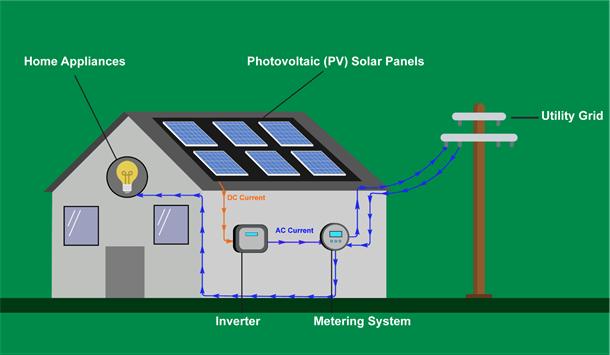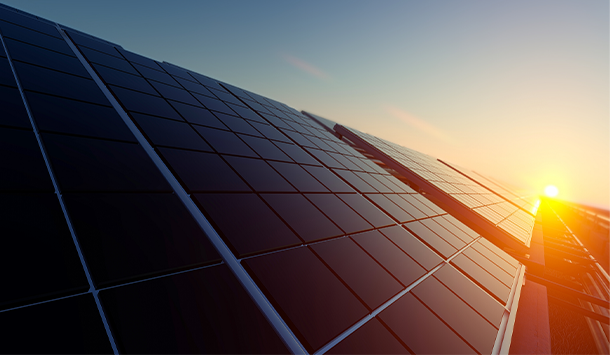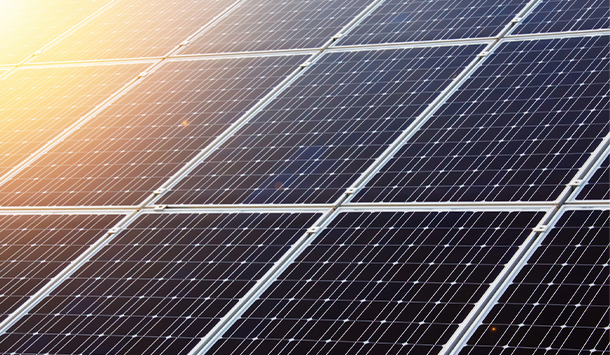
Contact Your Cooperative
A lot goes into the decision to invest in solar and many of these factors are specific to your unique situation.
We are here to help you navigate the decision at every stage by providing a better understanding of your electricity use, the latest information on reliable contractors, relevant policies, and accurate rates that should be central to your decision.
Please reach out to Kathreyn Portis - 325-625-2128 for more information.

PV System Overview
Residential solar systems have four key features: solar panels, an inverter, a metering system, and the utility grid.
Photovoltaic (PV) Solar Panels convert sunlight into direct current (DC) electricity and can be installed on either rooftops or the ground. An Inverter converts the DC electricity into useable alternating current (AC) electricity to power your home. A Metering System provided by the solar vendor tracks how much solar you produce and consume. The Utility Grid provides power to the inverter and power to the home not produced by the solar panel.
Keep in mind that solar panels will not be able to provide your home with electricity during a power outage, unless you have a battery.

Is Solar Right For Me?
Installing a solar PV system is a personal decision driven by financial considerations and your individual preferences.
Cost or savings of installing solar depends on many factors like how much energy you currently use, the size of the solar system installed, whether your property is suited for solar, and the retail tariff governing the rates you pay for electricity.
To find out whether solar makes sense for your home, try out our Solar Savings Calculator below!

Steps Before Installing Solar
1. Contact Kathreyn Portis - 325-625-2128 to understand how much electricity you use and other important factors that can help determine what size system makes sense for you.
2. Use the Solar Savings Calculator below to approximate how much you can save with solar and how much your system will cost.
3. Understand the complete financial implications of owning solar. There is an upfront cost to install a system and annual maintenance costs. Make sure the vendor you purchase from supports future maintenance.
4. Get multiple quotes from solar vendors and financing providers before you make any decisions.

Maximize System Efficiency
Multiple factors impact how much electricity your PV system will produce and will determine whether solar makes sense for you. Not all solar panels are manufactured the same way and different vendors use different panels. Higher quality solar panels are often more efficient and more costly. There are also multiple environmental factors that influence the efficiency of your solar panels. The largest factors are shade, the pitch of your roof, the angle of installation, and the general climate. Solar panels should be placed in a location that optimizes their efficiency. The vendor’s installation expert should identify the best location to install your PV system and to estimate how much electricity it will produce. You can consult them to address any aesthetic concerns and tradeoffs.
